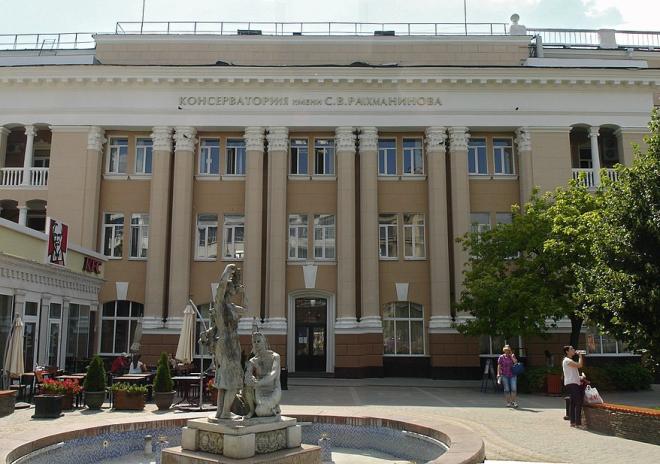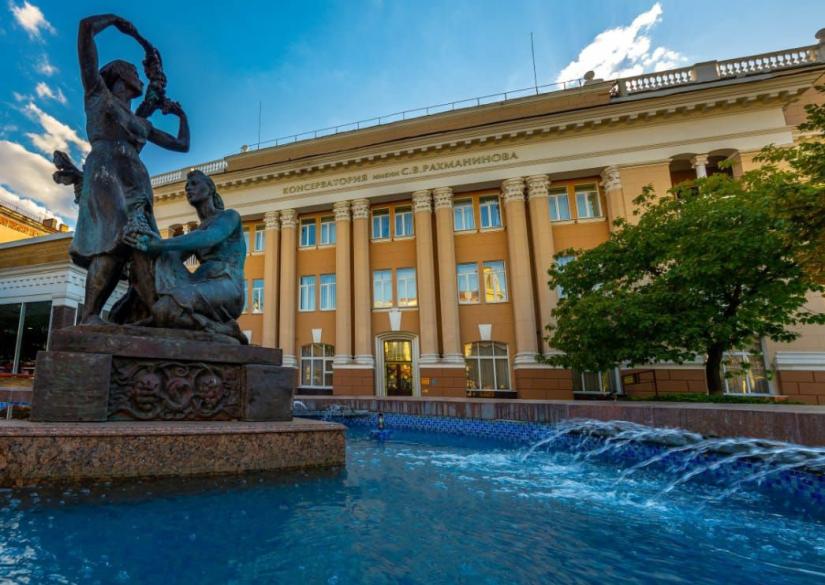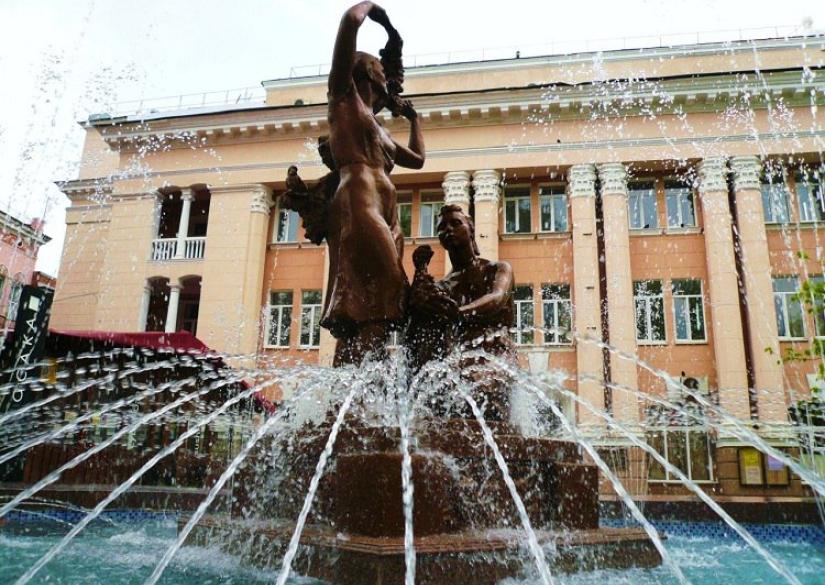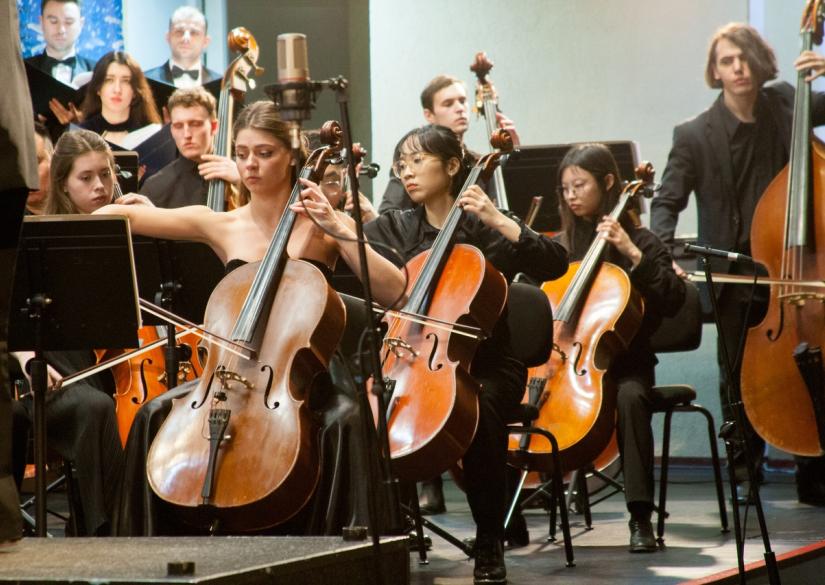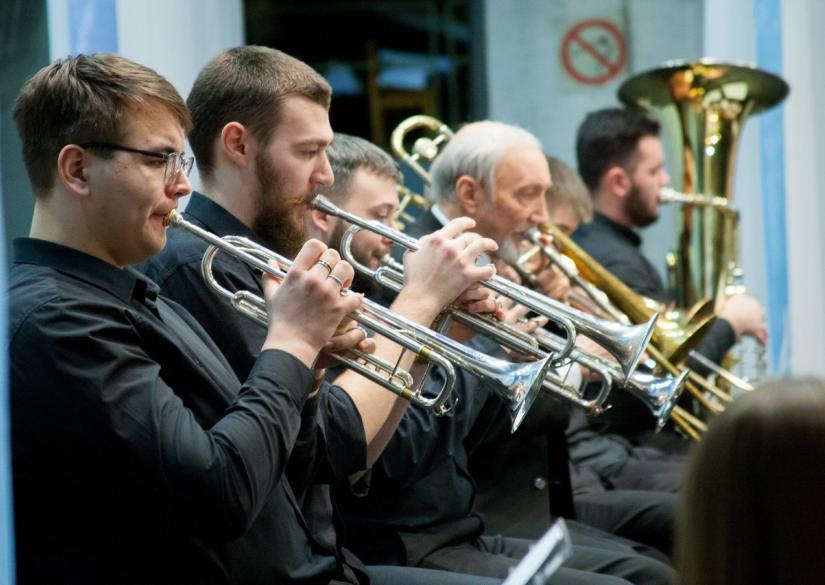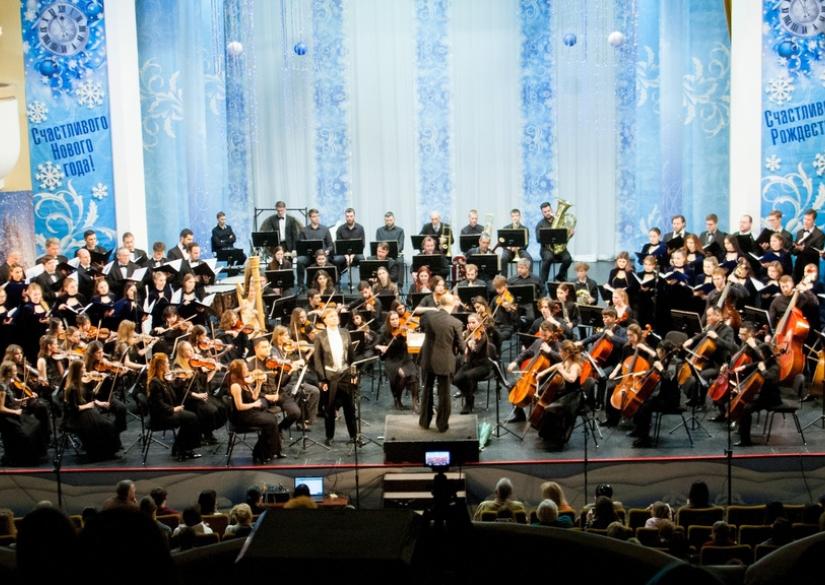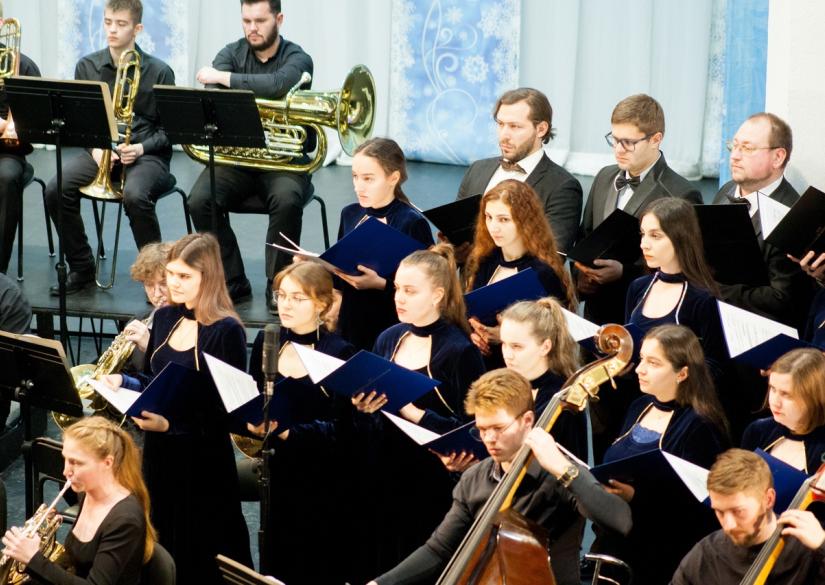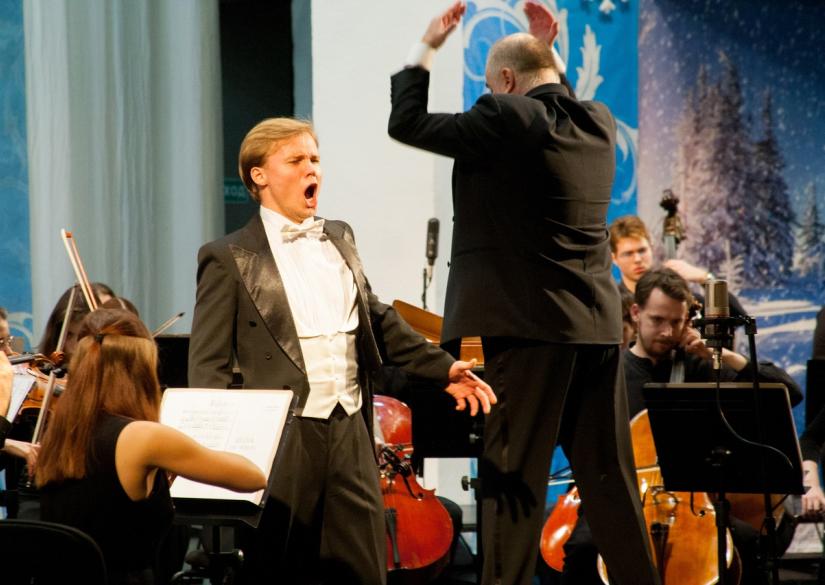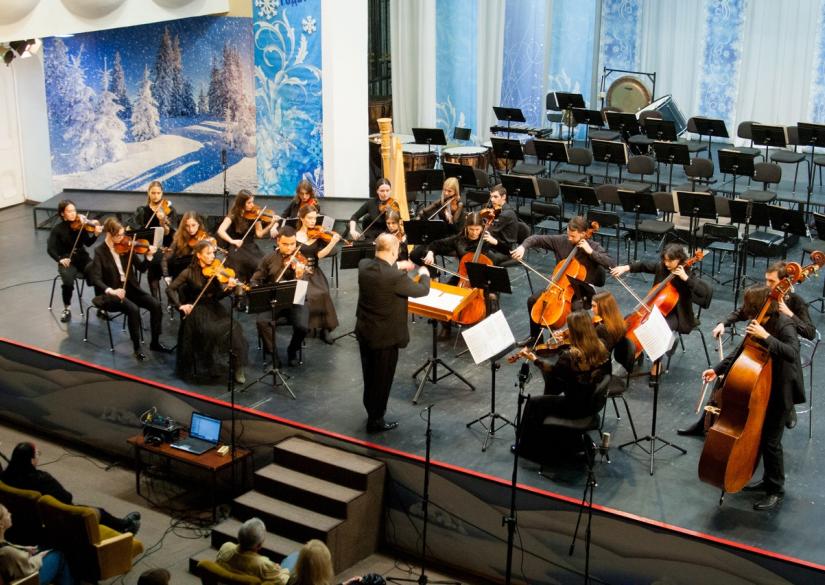Rostov State Conservatory named after S.V. Rachmaninov, RGC
Programs and prices, tuition fees in Rostov State Conservatory named after S.V. Rachmaninov, RGC
Bachelor
- Age - from 17 years,
- The term of study is from 4 years.
Specialty:
- "Musical art of variety",
- "Vocal art",
- "Musical and instrumental art",
- "Conducting",
- "The Art of Folk Singing",
- "Musicology and Musical and Applied Arts".
Speciality
- Age - from 17 years,
- The term of study is from 5 years.
Specialty:
- "Artistic direction of the opera and symphony orchestra and academic choir",
- "The Art of Concert Performance",
- "Musical and theatrical art",
- "Musical sound engineering",
- "Production",
- "Musicology",
- "Composition".
Master
- Age - from 21 years,
- The term of study is 2 years.
Specialty:
- "Conducting",
- "Vocal art",
- "Musicology and Musical and Applied Arts",
- "The Art of Folk Singing".
Description of Rostov State Conservatory named after S.V. Rachmaninov, RGC
- Location: Rostov-on-Don, Russia,
- Age of students: from 17 years,
- Type: mixed,
- Language of instruction: Russian.
The Rachmaninoff Rostov State Conservatory is the largest university of professional music education in the South of Russia and the North Caucasus. The conservatory educates highly qualified specialists in the field of art. Among the graduates of the RGC are eminent laureates and diploma winners of international competitions.
Educational process
The implementation of the educational program in the RGC provides for the following formats: lectures, practical and seminar classes, extracurricular activities.
Faculties and colleges
The Rachmaninoff Conservatory includes:
- Orchestral Faculty,
- Faculty of Solo Singing and Conducting,
- Piano Faculty,
- Faculty of Pop and Jazz Music and Sound Engineering,
- Faculty of History, Theory and Composition,
- College (SSMS),
- Recording studio.
Scientific achievements
On the basis of the RGC, the Student Scientific and Creative Society (SNTO) operates. SNTO is the organizer of intra-university competitions of student works and the keeper of the traditions of the university's research activities.
Things to know about
The RGC has signed international agreements and agreements on cooperation with the CIS countries and neighboring countries: China, Belarus, the Republic of Korea, the Republic of Moldova and others.
Accommodation, meals, prices
RGC has a dormitory for nonresident students and students from remote areas of the Rostov region. The total number of seats is 467. The dormitory has comfortable living conditions. The rooms accommodate from 2 to 8 people. There is a room for independent work, a gym.
Cost of living:
- 750 rubles per month - for students in state-funded places,
- 1650 rubles per month - for those enrolled on a commercial basis.
The hostel is located in the Oktyabrsky district of Rostov-on-Don, within walking distance are grocery stores and cafes. The building itself is equipped with common kitchens, in the main educational building of the RGC there is a dining room.
Activities Rostov State Conservatory named after S.V. Rachmaninov, RGC
Students of the Rachmaninoff State Conservatory take an active part in the life of the university. Students of the Conservatory adhere to a healthy lifestyle, participate in various sports competitions and attend sports sections. In addition, students of the RGC participate in concerts of the city, in festivals and give reporting concerts.
RGC organizes such festivals as:
- "Musical Review – OPUS-33",
- "Don Youth Camerata",
- Rachmaninoff Music Festival.
Facilities and equipment at Rostov State Conservatory named after S.V. Rachmaninov, RGC
The main building of the Conservatory is located in the Leninsky district of the city. Classrooms and classrooms for practical classes are equipped with modern computer, audio and video equipment. Classrooms for practical classes are equipped with musical instruments.
Sports venues:
- Hall for athletic gymnastics,
- Gym
- Outdoor sports ground,
- Hall for rhythmic gymnastics.
Other objects:
- Library
- First-aid post
- Dining room.
Admission dates and extra charges
At the RGC, the academic year begins in the first half of September and is divided into two semesters: autumn and spring. Classes are held according to the schedule of a six-day working week. The beginning of classes is in accordance with the schedule of study groups. At the end of each semester, an examination session is held. Students are provided with vacation weekends: winter (January) and summer (July-August).
Additional expenses:
- Residence
- Nutrition
- Transport
- Leisure and recreation.
Enrolment process
Acceptance of documents for full-time education in the RGC begins on June 13 of the current year. The end is July 7. The deadline for introductory, creative and professional examinations is until July 25 of the current year.
List of documents for admission to the Conservatory:
- Identity card, citizenship (passport),
- SNILS,
- INN
- Document on education (certificate or diploma),
- Photographs, 6 pcs. (color, 3x4),
- Medical certificate 0-86U,
- Vaccination certificate and fluorography,
- Confirmation of individual achievements, the results of which are taken into account when admitting.
The necessary package of documents is provided to the SGIC:
- By mail,
- In person to the admissions office,
- By e-mail.
Enrolment statistics
Today, more than 700 people study at the RGC. About 90 state-funded places are allocated annually.
The most popular areas of study:
- "Musical and instrumental art",
- "The Art of Concert Performance".
Perspectives
RGC operates the Alumni Employment Center, which helps students and graduates of the university in matters of internship and employment. Graduates of the RGC are successfully employed in Russia and neighboring countries. Natives of the RGC today are soloists of theaters, professors and teachers in universities and colleges.
Entry requirements, how to apply, what is required to enrol
The main requirements of the RSC named after S.V. Rachmaninoff for applicants:
- Level of education (secondary general or secondary vocational),
- High results of the exam or entrance examinations,
- Successful completion of the creative and professional test.
Scholarships Rostov State Conservatory named after S.V. Rachmaninov, RGC
- State academic scholarship - from 2500 rubles.
- Increased state academic scholarship - from 4800 rubles.
- State social scholarship - from 4000 rubles.
Institution on the map
Residence permits, citizenship and other services
- Guardianship services during the studies
- Student supervision
Review about Rostov State Conservatory named after S.V. Rachmaninov, RGC
Recommendations on when to apply
| Language courses, schools and children's language camps | Primary and secondary education - private schools | Preparation programmes for entering universities - higher education | Higher education (after completing accredited programs A-level, IB, High School) - Bachelor, Master, MBA |
| - we recommend to apply 6-9 months before the start of the course (some camps and schools offer discounts for early booking or for lengthy study programs) - there are some very popular and high demand children's camps, where the applications need to be submitted 1 year in advance (in particular Switzerland , Great Britain , USA , Canada , Austria) | - we recommend to apply one year before the start of the training program, - some schools have a specific time frame (September-November - please specify an individual school) - some schools require tests in several stages (UKISET, internal tests of the school: English, mathematics, logics, subjects, interview, some require a personal visit) | - we recommend to apply one year before the start of the program, - for Foundation and Pathway programs, IELTS and TOEFL certificates are usually required, respectively | - recommended submission one year before the start of the program, - the deadline normally closes in January, for TOP HEIs and, as a rule, in March in other universities - for a bachelor, a Foundation or Pathway preparatory program a completed A-level, IB, High School + IELTS / TOEFL are required - for Masters you need a graduated higher education, in some cases you need a pre-Masters program - MBA requires completed higher education, work experience preferably at least 2-3 years, etc. |


